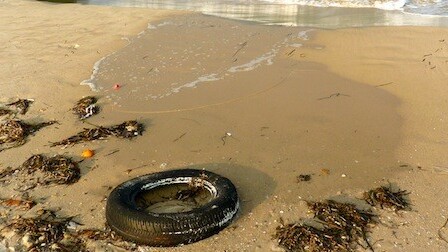
It’s been just over a year since a devastating tsunami hit Japan, and the Maritime Museum of British Columbia (MMBC) has come up with the latest online project aiming to help survivors, in a unique way, with the use of a Facebook page.
With everything from ‘ghost ships‘ to toothbrushes making their way across the Pacific Ocean, there is an estimated 1.5 million tons of debris floating from Japan to North America.
Inviting users to upload images of the debris they have found on North American shores, the page aims not only to document all of these items, and determine their origins, it also aims to connect lost belongings with their owners.
This is not the first way in which technology has been used in one way or another to either alleviate the effects of the tsunami, or document them. We’ve seen everything from robotic seals comforting tsunami victims to the documentation of the recovery process in Japan through satellite images provided by Google.
The museum will play an active role in identifying the content of the photos:
Moderators at the museum will attempt to determine the origin of debris, assess any potential value and share the photos and add comments. Japanese visitors to the site could scan the site for lost or recognizable items. In some cases where an object has been collected from the beach it may be able to be returned to its owner through the Japanese Consulate.
The page is an amazing testament to something which makes us more than happy to pull out a tired and over-used cliché about how the Internet makes it easier than ever to connect with people from all over the world.
It will be fascinating to watch and see the kinds of things that wind up on North America’s shores, almost like thousands of accidental ‘messages in bottles’, so to speak.
If successful, the project could also see those items make their way back to Japan, reuniting sentimental or prized possessions with their Japanese owners.
The Tsunami Debris Project is another wonderful example of how our online connectivity has the potential to make us better human beings.
Get the TNW newsletter
Get the most important tech news in your inbox each week.




